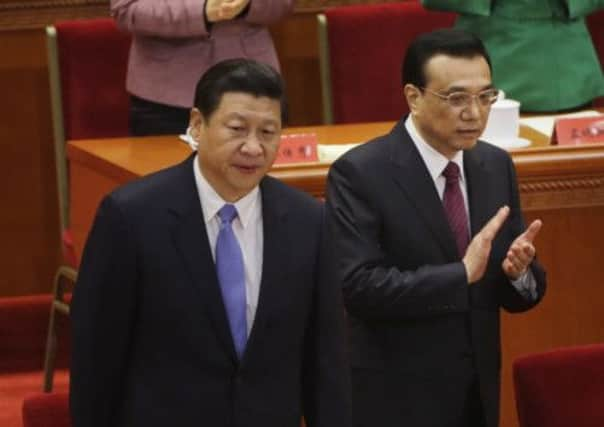Chinese set for leap forward with privatisation


The meeting will show just how committed the new leadership, headed by president Xi Jinping and premier Li Keqiang, is to reform after formally coming to power in March.
The Communist Party has yet to announce an agenda for the four-day gathering that starts tomorrow but one leader has promised “profound” changes.
Advertisement
Hide AdAdvertisement
Hide AdChina’s press and a Cabinet think-tank point to possible reforms ranging from giving farmers more control over land to forcing state industry to compete with entrepreneurs.
Any change could faces huge resistance from factions, including state companies that see privileges threatened.
“You don’t propose a whole package of reforms and tell people to do everything at once,” said Tao Ran, director of the Brookings-Tsinghua Centre for Public Policy in Beijing. “You have to study the system and interest groups and create packages to compensate those who lose to reduce their resistance.”
Three decades after Deng Xiaoping’s reforms launched China’s economic boom, even party leaders agree a growth engine based on exports and heavy industry is running out of steam. They want to shift to cleaner, self-sustaining growth driven by domestic consumption and technology.
“They have to make room for entrepreneurs,” said Sun Dawu, chair of a conglomerate with interests in agriculture, education and food processing in Baoding, 100 miles from Beijing.
Mr Sun’s career highlights the hurdles facing China’s private businessmen. Once praised by the state press for his success, he received a suspended jail sentence in 2003 on charges of improperly raising money from investors after he was unable to get bank loans.
“The obstacles are systemic – the ideology of public ownership,” he said. “They think state-owned companies are the foundation of the economy.”
Pressure for change has mounted as China’s expansion slowed following a decade when growth peaked above 14 per cent in 2009. That has raised the risk of unemployment and disaffection among entrepreneurs and professionals. They are the biggest winners from reform and a key base of support for the ruling party.
Advertisement
Hide AdAdvertisement
Hide AdThis weekend’s meeting is the 205-member Central Committee’s third plenum of the party’s 18th congress. That tedious title has symbolic significance: meetings at this point in the party’s five-year political cycle are seen as a launch-pad for changes in economic direction after Mr Deng used a third plenum in 1978 to unveil market reforms.
“The reforms this time will be broad, with major strength, and will be unprecedented,” said Yu Zhengsheng, the fourth ranking member of the party’s ruling Standing Committee, according to the official Xinhua News Agency. A roadmap issued by a Cabinet think-tank, the Development Research Centre, calls for letting private firms into state-run industries such as rail, oil and electric power. It represents only the most pro-free market of official thinking.
State banks, oil firms and steelmakers are criticised by reform advocates as a drain on the economy, consuming billions of pounds a year in subsidies. But they also serve political goals, paying to develop poor areas and providing a flow of jobs and revenue for party leaders to buy loyalty.